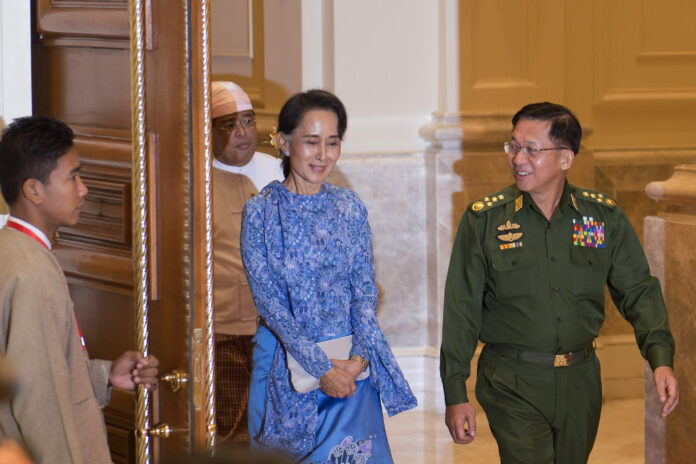A court loyal to Myanmar’s military government on Friday sentenced civilian leader Aung San Suu Kyi to seven more years in prison. Along with this, she was found guilty of illegally importing walkie-talkies, violating the rules of Covid-19, and violating the Official Secrecy Act and has been sentenced to a total of 33 years in prison.
According to the media sources, Suu Kyi will be moved from the current detention center to another location now that her trials have been concluded. It was unclear when that would happen or where she would be transferred to, but the sources said it was likely she would be moved to Yangon’s notorious Insein Prison.
The 77-year-old Nobel Peace Prize winner for her decades-long campaign for democracy in Myanmar, Suu Kyi has been detained since the February 2021 coup. There are still widespread protests in Myanmar saying that this ended Myanmar’s short democratic experiment.
A few months ago, her National League for Democracy (NLD) party won the national elections and she is preparing for another five-year term as the de facto leader of the country.
Suu Kyi, who is also the daughter of the independence hero, spent nearly two decades in detention during the former military regime.
Suu Kyi led Myanmar for five years from 2015 during a decade of tentative democracy that came after the military ended its 49-year rule, only for it to wrest back control early last year to stop Suu Kyi’s government from starting a second term.
Suu Kyi was born on June 19, 1945, in the last week of World War II in Yangon, which was occupied by Japan.
Her father, Aung San, fought for and against both the British and Japanese colonialists in 1948 to give his country the best chance to gain independence.
Suu Kyi spent most of her early life outside of Myanmar. Initially, she spent time in India while her mother was the ambassador of India, and later she studied at Oxford University. She met her British husband while staying in the UK.
After General Ne Win seized full power in 1962, she implemented her socialist practices in Myanmar, but what was once known as the Rice Beggar of Asia has turned into the world’s poorest and most isolated country.
Suu Kyi was honored as the mother of democracy after she returned to her country in 1988 to take care of her dead mother. At least 3,000 people were killed during her leadership in the 1990s when the army suppressed demonstrations against the authoritarian regime. This bloodshed became a motivation for Suu Kyi to fight for the people.
The 43-year-old, who was a prodigious orator before the NLD won by a landslide in the 1990 elections, was leading the democratic movement.
The generals were not ready to give up power. Ignoring the results of the vote, they confined Suu Kyi to her home in Yangon, where she spent about 15 of the next 20 years.
She was awarded the Nobel Peace Prize in 1991 while in custody.
The junta administration offered to end her imprisonment at any time if she left the country permanently, but Suu Kyi refused and vowed to dedicate herself to the country.
That decision meant she didn’t even get to see her husband before he died of cancer in 1991. She also had to lose his two grown sons while she was still in detention.
Finally, the army granted her freedom in 2010, days after the boycotted elections by her party. A government was formed under the leadership of a non-military citizen.
Five years later, her party, the NLD, won the next election. This made the majority of people in Myanmar happy. The 2020 vote increased her party’s majority, but she was detained after the military claimed the NLD rigged the election to influence it.
During Suu Kyi’s tenure, her administration was beset by problems and an uneasy relationship with the military, which maintained a powerful political role. But after the repression of the Rohingya community in 2017, the government and the army were seen in “lockstep”. Her office has denied claims that the refugees who fled were victims of rape, extrajudicial killings, and arson by the Myanmar army.
She personally defended the conduct of the army and even went to The Hague in 2019 to refute allegations of genocide at the United Nations Supreme Court.
Exactly one year later, she has become a prisoner of the army again. Now she faces the prospect of spending the rest of her life in custody.
(With inputs from agencies)
A global media for the latest news, entertainment, music fashion, and more.











